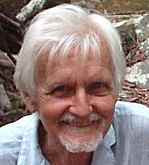Re-fuelling your bike from the local store where the storekeeper buys it in small amounts of maybe one gallon, and dispenses it a litre at a time - in plastic bottles. No pumps, or warning signs about the hazards of smoking, or remembering to turn of your engine.
Here we are on this self-same bike as we set off for a tour of the village so kindly offered by this local resident. The bike was an Indian produced replica of the English Royal Enfield, which is known there as just Enfield, having dropped the name Royal. A very sturdy and reliable bike it is too. I loved riding on it and the tour of the village.
On the tour we visited his home a traditional thatched roof, earthen floored dwelling.
We spent some time chatting with his wife and partaking the usual refreshment which is traditionally offered. In this instance is was water sweetened with honey which has been collected from their own hives.
As we toured round, we passed numerous small rubber tree plantations which are popular with the villagers providing a source of income as a cash crop, as rubber is still quite in demand.
The young trees take from 7 to 8 years before they come into production.
This is the river in which I swam almost each day whilst in Kerala. I enquired about crocodiles and was told that yes, they had had crocodiles many years ago, but no longer did so. I am not sure how long ago this was. They also informed me that monkeys were not a problem for them, u elephants were.
This is one of the many pumps the people have for irrigating their land and the crops they are growing. I was informed by this landholder that they were very fortunate in having sufficient water to not have any restrictions placed upon the amount they could pump out of the river.









1 comment:
Fantastic- thanks for taking the time to post
greg
Post a Comment